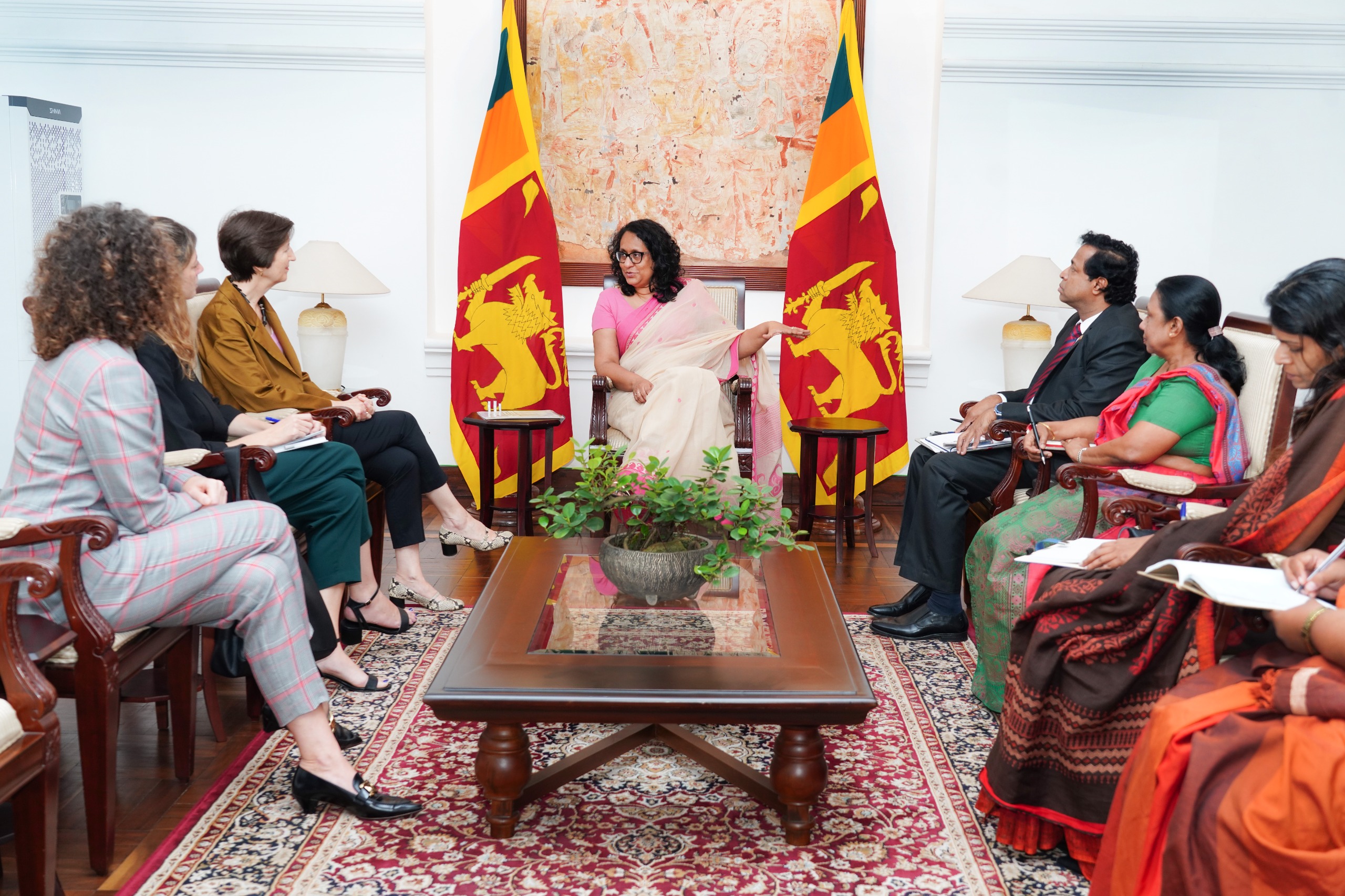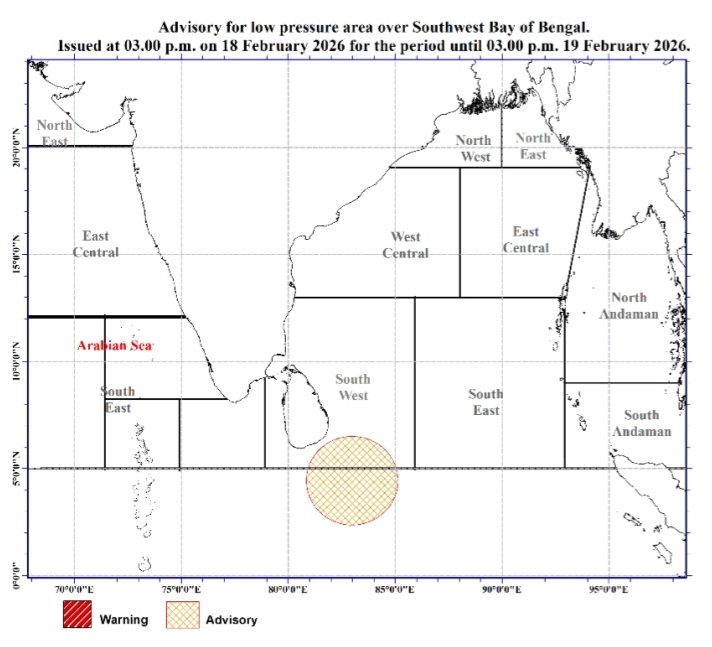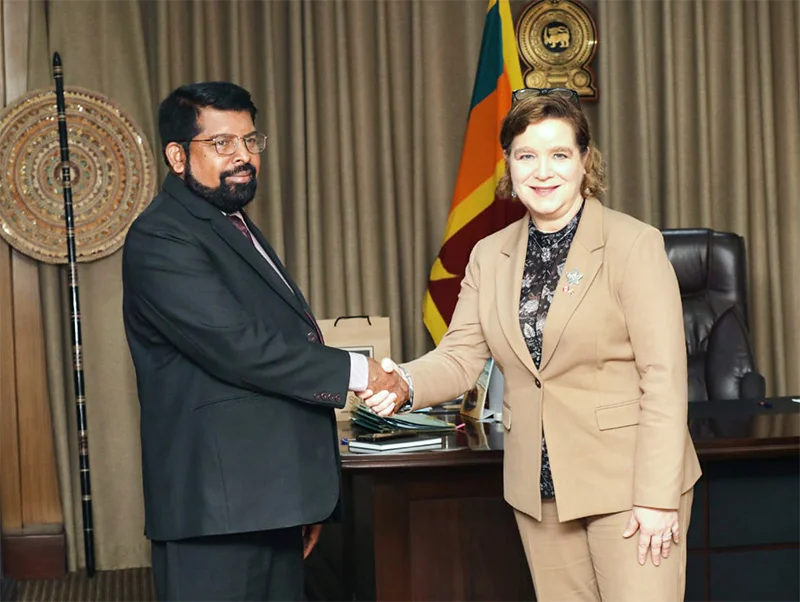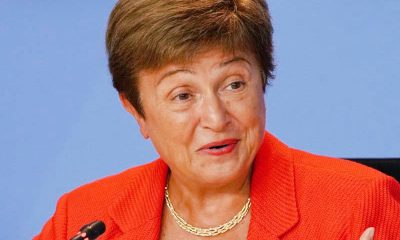News
Medical community urges President to address immediate needs

The Presidents of the Sri Lanka Medical Association (SLMA), Medical Professional Colleges and Associations (working in collaboration as SLMA Medical Intercollegiate Committee (SMIC) have written to President Gotabaya Rajapaksa urging him to address the acute shortage of essential medicines, reagents, equipment and consumables in government hospitals and the private healthcare sector.
Decisions have already been made to curtail some services such as routine surgical operations and even limit the usage of available material to life-threatening illnesses, the medical professionals have pointed out.
“This is not at all a sound policy becauuse what is considered non-emergency situations could turn into life-threatening problems within a few hours. In addition, this is not a sustainable policy and unless urgent replenishment of supplies is made, within a matter of weeks, if not days, emergency treatment will also not be possible. This will result in a catastrophic number of deaths, which is likely to be in excess of the combined death toll of COVID, tsunami and the civil war.”
The medical professionals have pointed out that health encompasses physical, mental, social and spiritual wellbeing of people. Therefore, they are greatly concerned about the shortages of food and essential paraphernalia for people to provide themselves with basic needs, such as nutrition, transport and electricity.
“We are also concerned gravely about the need to preserve fundamental rights and guarantee basic freedoms such as right to information as these encompass important aspects of mental and social wellbeing of a population,” they said.
Given below are excerpts of the letter: “We have identified how we, as a group of professionals, could extend our help to the authorities to overcome the crisis, and list them below.
1. We accept that the current crisis has no immediate solutions and are willing to extend our expertise, guidance and advice to you at this moment.
2. We have initiated discussions with our members on preservation of the existing stocks of medicines and consumables to last for as long as possible (which may be only a very short-term solution) by prudent use. We do appreciate that even patients having non-emergency and non-urgent illnesses require optimal care and withholding their treatment will pose medical and ethical problems for the doctors of the country.
3. We pledge to regularly meet and discuss with the ministers holding health related portfolios as well as your good self and provide guidance and advice to provide the most equitable distribution of severely restricted medical supplies.
In addition, we request your kind cooperation on the following aspects.
1. We urge you to discuss with ministers holding relevant portfolios, public officials such as Secretary to Treasury, Secretary Health and Governor of the Central Bank about securing funding to fulfill the basic needs of the hospitals and the National Immunisation Programme of the country. This is an urgent priority.
2. Whilst accepting the immediate crisis, we wish to know from you and relevant officials’ details of your plans to meet the exigencies related to health and wellbeing of the population. We request a clearly laid out road map with time frames to be provided at the earliest possible time. We can then in turn do our duty in reassuring the medical community as well as the general public that solutions to the pressing health and wellbeing issues are forthcoming.
We do accept that these are difficult times for you as well as all the citizens of the country. The need of the hour is to be truthful, compassionate and for you to use the country’s intellectual resources in the form of expert advice and guidance from professionals.
We in the medical profession stand firmly committed to doing everything possible to preserve the health and wellbeing of the people of Sri Lanka in this crisis. We do believe that you share our ideals and sentiments expressed regarding the health of the nation and its people.
Please be kind enough to grant us an urgent appointment to meet your Excellency with top officials of the Ministry of Health to discuss and develop a contingency plan. We will provide our fullest support to mitigate the crisis. We wish to thank you, in advance, for your most kind consideration of the contents of this communication.”
News
Ambassador of Switzerland to Sri Lanka pays courtesy call on PM

The Ambassador of Switzerland to Sri Lanka Dr. Siri Walt paid a courtesy call on Prime Minister Dr. Harini Amarasuriya on the 17th of February at the Temple Trees.
Welcoming the Ambassador of Switzerland to Sri Lanka the Prime Minister briefed the Ambassador on her recent visit to Davos to participate in the World Economic Forum Annual Meeting noting that the series of high-level bilateral meetings held on the sidelines of the Forum, along with two important industry visits provided valuable insights for Sri Lanka’s economic engagement.
The discussion focused on Switzerland’s vocational education and training (VET) system, with particular interest in exploring possible cooperation and knowledge-sharing opportunities.
The Prime Minister also conveyed her appreciation for the assistance extended by the Government of Switzerland following Cyclone Ditwah. She emphasized Sri Lanka’s need for enhanced technical assistance during the ongoing rebuilding phase, especially in relation to the reconstruction of bridges and railway infrastructure.
Both sides reaffirmed their shared commitment to further strengthening bilateral relations between Sri Lanka and Switzerland, and to expanding cooperation in areas of mutual interest.
First Secretary (Political) of the Embassy of Switzerland in Colombo Ms. Justine Boillat, First Secretary (Migration) of the Embassy of Switzerland in Colombo Ms. Andrea Kienast and the Secretary to the Prime Minister, Pradeep Saputhanthri, Additional Secretary to the Prime Minister, Ms. Sagarika Bogahawatt and officials from the Ministry of Foreign Affairs , Foreign Employment, Tourism.attended the meeting.
[Prime Minister’s Media Division]
Latest News
Advisory for low pressure area in the Southwest Bay of Bengal to the south-east of Sri Lanka

Advisory for low pressure area in the Southwest Bay of Bengal to the south-east of Sri Lanka.
Issued by the Natural Hazards Early Warning Centre of the Department of Meteorology at 03.00 pm on 18 February 2026
Multiday boats fishermen and naval community are warned that the low-pressure area still persists over the Southwest Bay of Bengal to the south-east of Sri Lanka. Under the influence of this system, heavy showers or thundershowers, Strong winds about (50-60) kmph, and rough or very rough seas can be expected in these sea areas.
The Meteorological Department is constantly monitoring the behavior of the system.
The naval and fishing communities are requested to be attentive to the future forecasts and bulletins issued by the Department of Meteorology in this regard.
News
Canada concerned about delay in holding PC polls

Canada, said to be the home to the largest Tamil Diaspora community, has expressed concern over the delay in holding Provincial Council (PC) elections. Canadian High Commissioner Isabelle Martin, on Monday (16), took up the issue with Public Administration, Provincial Councils and Local Government Minister Professor Chandana Abayaratne.
Sources quoted Prof. Abayaratne as having told the Canadian HC that the delay was not deliberate on the part of the government. The Minister blamed, what the sources called, certain legal, technical and delimitation issues for the delay.
India compelled Sri Lanka to enact the 13th Amendment to the country’s Constitution to enable the setting up of the Provincial Council system, in line with the Indo-Lanka Peace Accord, which Sri Lanka signed under duress in July 1987.
Prof. Abayaratne has assured the Canadian HC that President Anura Kumara Dissanayake, too, recognised the importance of strengthening the Provincial Council system as a solution to ethnic issues and that urgent steps would be taken in that regard.
During the discussion, matters relating to strengthening political, economic and social relations between the two countries were discussed.
In May 2020, Canada declared that Sri Lanka had perpetrated genocide during the war against the LTTE. Canada also sanctioned former Presidents Mahinda Rajapaksa and Gotabaya Rajapaksa in January 2023 over alleged war crimes.
The Canadian HC also explained her country’s ‘Indo-Pacific’ strategy and how Sri Lanka could benefit from it.
In particular, Canada’s “Pathways to Peace” project will support reconciliation between nations, and to improve communication by encouraging the learning of mutual languages as a second language, and it was also agreed to provide more opportunities for Sri Lankan students to pursue higher studies in Canada.
The Canadian delegation also expressed its willingness to provide the necessary technical assistance to solve the drinking water problems in Puttalam, Mannar and the North-Eastern provinces under technical cooperation, and to implement the relevant projects after a preliminary study.
by Shamindra Ferdinando
-

 Life style4 days ago
Life style4 days agoMarriot new GM Suranga
-

 Business3 days ago
Business3 days agoMinistry of Brands to launch Sri Lanka’s first off-price retail destination
-

 Features4 days ago
Features4 days agoMonks’ march, in America and Sri Lanka
-

 Features4 days ago
Features4 days agoThe Rise of Takaichi
-

 Features4 days ago
Features4 days agoWetlands of Sri Lanka:
-

 News4 days ago
News4 days agoThailand to recruit 10,000 Lankans under new labour pact
-

 News4 days ago
News4 days agoMassive Sangha confab to address alleged injustices against monks
-

 News2 days ago
News2 days agoIMF MD here













